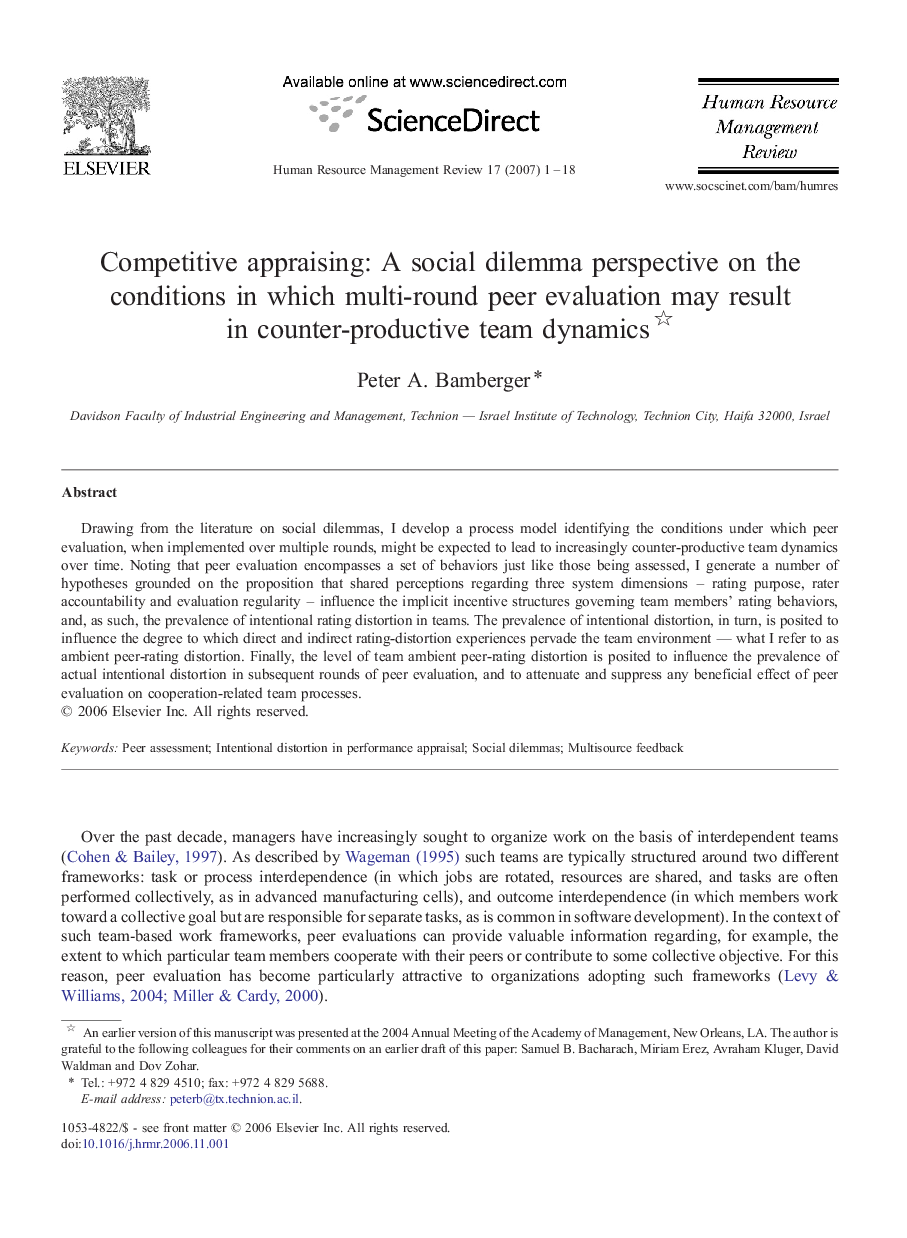| Article ID | Journal | Published Year | Pages | File Type |
|---|---|---|---|---|
| 879799 | Human Resource Management Review | 2007 | 18 Pages |
Drawing from the literature on social dilemmas, I develop a process model identifying the conditions under which peer evaluation, when implemented over multiple rounds, might be expected to lead to increasingly counter-productive team dynamics over time. Noting that peer evaluation encompasses a set of behaviors just like those being assessed, I generate a number of hypotheses grounded on the proposition that shared perceptions regarding three system dimensions – rating purpose, rater accountability and evaluation regularity – influence the implicit incentive structures governing team members' rating behaviors, and, as such, the prevalence of intentional rating distortion in teams. The prevalence of intentional distortion, in turn, is posited to influence the degree to which direct and indirect rating-distortion experiences pervade the team environment — what I refer to as ambient peer-rating distortion. Finally, the level of team ambient peer-rating distortion is posited to influence the prevalence of actual intentional distortion in subsequent rounds of peer evaluation, and to attenuate and suppress any beneficial effect of peer evaluation on cooperation-related team processes.
